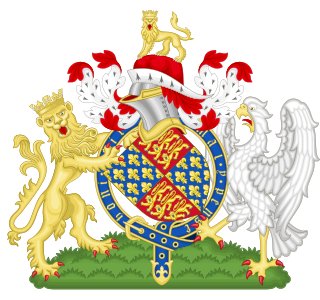| Chapter | Short title | Title | Notes |
|---|
| 1 | De donis conditionalibus | In Gifts in Tail the Donor's Will shall be observed. The Form of a Formedon . | Still in force in England and Wales. |
| 2 | Replevin Act 1285 | A Recordare to remove a Plaint. Pledges to prosecute a Suit. Second Deliverance. | |
| 3 | | A Cui in vita for the Wife. Where a Wife, or he in Reversion, shall be received. | |
| 4 | | Where the Wife shall be endowable of Lands recovered against her Husband. Where the Heir may avoid a Dower recovered. A remedy for particular Tenants losing by default. | |
| 5 | Recovery of Advowsons Act 1285 | Remedies to redress Usurpations of Advowsons of Churches, &c. | |
| 6 | | The Penalty if a Tenant impleaded voucheth, and the Vouchee denieth his Warranty. | |
| 7 | | Admeasurement of Dower for the Guardian and the Heir, and the Process therein. | |
| 8 | | In what Case a Secunda superoneratione Pasturæ shall be awarded. | |
| 9 | | In what Case the Writ of Mesne is to be pursued. | |
| 10 | Suits Before Justices in Eyre Act 1285 | At what Time Writs shall be delivered for Suits depending before Justices in Eyre. Any Person may make a general Attorney. | |
| 11 | Accountants Act 1285 | The Masters Remedy against their Servants, and other Accomptants. | |
| 12 | Appeal of Felony Act 1285 | The Appellant being acquitted, the Appellor and Abettors shall be punished. There shall be no Essoin for the Appellor. | |
| 13 | Sheriff's Tourn, etc. Act 1285 | The Order of the Indictments taken in the Sheriffs Turn. | |
| 14 | Actions of Waste Act 1285 | The Process in an Action of Waste. A Writ to enquire of Waste. | |
| 15 | Suit of Infant by Next Friend Act 1285 | An Enfant eloined may sue by Prochein Amy . | Still in force in the Republic of Ireland. |
| 16 | Wardship Act 1285 | Priority of Feoffment giveth Title of Wardship. | |
| 17 | Essoin Act 1285 | In what Case Essoin De malo lecti doth lie, and where not. | |
| 18 | Damages: Execution Act 1285 | He that recovereth Debt may sue Execution by Fieri facias or Elegit . | |
| 19 | Intestates' Debts Act 1285 | The Ordinary chargeable to pay Debts as Executors. | |
| 20 | | The Tenants Answer in a Writ of Cosinage , Aiel , and Besaiel . | |
| 21 | | A Cessavit by the chief Lord against his Freehold Tenant. | |
| 22 | | Waste maintainable by one Tenant in common against another. | |
| 23 | Executors; Writ of Accompt Act 1285 | Executors may have a Writ of Accompt. | |
| 24 | | A Writ of Nuisance of a House, &c. levied and aliened to another. A Quod permittat and Juris utrum for a Parson of a Church. In like Cases like Writs be grantable. | |
| 25 | | Of what Things an Assise shall lie. Certificate of Assise. Attachment in an Assise. | |
| 26 | | Who may bring a Writ of Redisseisin, and the Punishment of the Offender therein. | |
| 27 | Essoins Act 1285 | Essoin after inquest, but none after Day given Prece partium. | |
| 28 | | In certain Actions, after Appearance there shall be no Essoin. | |
| 29 | Writs of Trespass, etc. Act 1285 | To whom only the Writ of Trespass of Oyer and Terminer shall be granted. In what Case the Writ of Odio & Atia is granted. | |
| 30 | Justices of Nisi Prius, etc. Act 1285 | The Authority of Justices of Nisi prius . Adjournment of Suits. Certain Writs that be determinable in their proper Counties. A Jury may give their Verdict at large. None but which were summoned shall be put in Assises or Juries. | |
| 31 | Bills of Exceptions Act 1285 | An Exception to a Plea shall be sealed by the Justices. | |
| 32 | Mortmain Act 1285 | Mortmain by Recovery of Land by Default. | |
| 33 | Forfeiture of Lands Act 1285 | Lands where Crosses be set, shall be forfeited as Lands aliened in Mortmain. | |
| 34 | Forfeiture of Dower, etc. Act 1285 | It is Felony to commit Rape. A married Woman elopeth with Advouterer. The Penalty for carrying a Nun from her House. | |
| 35 | Punishment of him that taketh away a Ward Act 1285 | In what Cases do lie a Writ of Ravishment of Ward, Communi Custodia, Ejectione, &c. | |
| 36 | Procurement of Suits Act 1285 | A Distress taken upon a Suit commenced by others. | |
| 37 | The Distress Act 1285 | No Distress shall be taken but by Baliffs known and sworn. | |
| 38 | Juries Act 1285 | How many shall be returned in Juries and petit Assises, and what Age they shall be. | |
| 39 | Execution of Process Act 1285 | The Manner to deliver Writs to the Sheriff to be executed. The Sheriff returneth a Liberty where none is. Returning of Issues. Resistance of Execution of Process. | |
| 40 | | A Woman's Suit shall not be deferred by the Minority of the Heir. | |
| 41 | Alienation by Religious Houses, etc. Act 1285 | A Conira formam Collationis; and a Cessavit to recover Lands given in Alms. | |
| 42 | Fees of King's Marshall Act 1285 | The several Fees of Marshals, Chamberlains, Porters of Justices in Eyre, &c. | |
| 43 | Hospitallers and Templars Act 1285 | Hospitallers and Templars shall draw no Man into Suit, &c. | |
| 44 | Fees of Officers on Circuit Act 1285 | The Fees of Porters bearing Verges before the Justices; and of Cirographers, Clerks, &c. | |
| 45 | Execution Act 1285 | The Process of Execution of Things recorded within the Year, or after. | |
| 46 | Commons Act 1285 | Lords may approve against their Neighbours. Usurpation of Commons during the Estate of particular Tenants. | Repealed in England and Wales in 2006. |
| 47 | Salmon Preservation Act 1285 | A Penalty for taking of Salmons at certain Times of the Year. | |
| 48 | | In what Cases the View of Land is grantable, and what not. | |
| 49 | Maintenance and Champerty Act 1285 | The Penalty for buying the Title of Land depending in Suit. A Remedy for Suits where the Law faileth. | |
| 50 | | No Man shall depart from the King's Court without Remedy. | |









